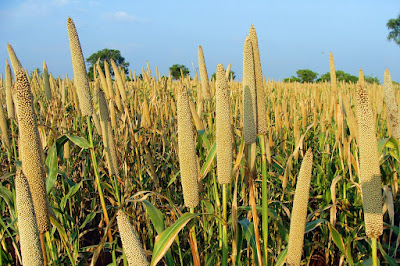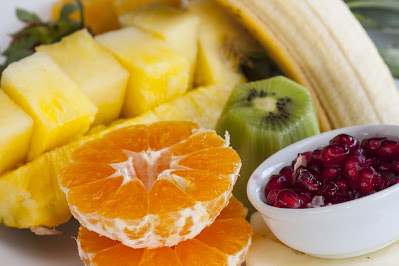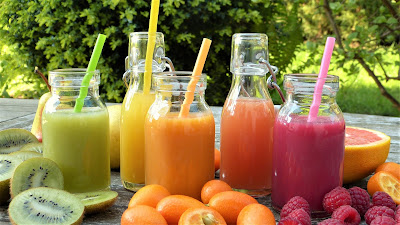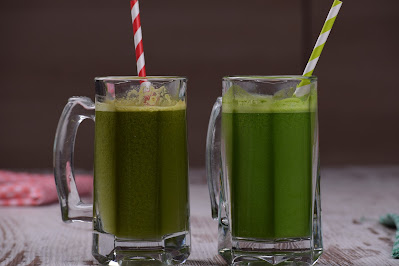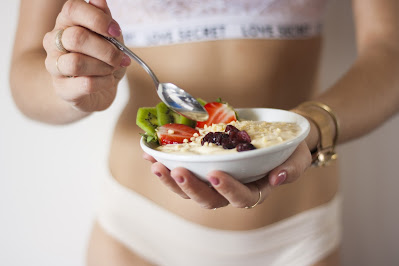The GOLO diet is a weight loss program that emphasizes a balanced, whole-foods-based approach to eating. The program was developed by a team of doctors, pharmacists, and nutritionists and is designed to help individuals improve their metabolism and insulin sensitivity to support healthy weight loss.
The GOLO diet is based on the concept of the "GOLO Release" supplement, which contains a blend of natural plant extracts and minerals designed to support metabolic health. The supplement is taken with meals to help regulate blood sugar levels and support healthy weight loss.
Here are some examples of meals that might be included on the GOLO diet:
Breakfast: A spinach and mushroom omelet made with whole eggs and served with a side of sliced avocado and a piece of whole-grain toast.
Lunch: A grilled chicken salad with mixed greens, cherry tomatoes, cucumbers, and a homemade vinaigrette dressing made with olive oil and apple cider vinegar.
Snack: A small handful of raw almonds and a piece of fruit, such as an apple or a pear.
Dinner: Baked salmon with roasted asparagus and quinoa. The salmon is seasoned with lemon, garlic, and herbs and baked in the oven, while the asparagus is roasted with olive oil and spices. The quinoa is cooked with vegetable broth and mixed with sautéed onions and garlic.
The GOLO diet emphasizes whole, nutrient-dense foods and encourages individuals to limit processed and refined foods, such as white bread, sugary drinks, and fast food. The diet also encourages regular physical activity and stress management techniques to support overall health and weight loss.
It is important to note that while the GOLO diet may be helpful for some individuals in supporting weight loss and metabolic health, it is not a one-size-fits-all approach. As with any diet or weight loss program, it is important to work with a healthcare provider or registered dietitian to develop a personalized plan that meets your specific nutritional needs and health goals.
Learn All About Weight Loss Through The 1200 Calorie Liquid Diet. Burn Belly Fat, Melt Body Fat and Lose Weight Without Starvation, Painful Exercise and Lethargy.
Tuesday, 25 April 2023
Effective Weight Loss With The GOLO Diet Plan
Sunday, 16 April 2023
Boost Your Weight Loss Strategy With Millets
Millets are a group of small-seeded grasses that are widely grown and consumed as staple foods in many parts of the world, especially in Africa and Asia. They are gluten-free and have a low glycemic index, making them a healthy alternative to wheat and other grains. Here are some of the most common and popular types of millets:
Pearl millet
Finger millet
Foxtail millet
Proso millet
Barnyard millet
Kodo millet
Little millet
Millets are an excellent food choice for weight loss because they are low in calories and high in fiber. A single serving of millet contains fewer calories than an equivalent serving of other grains like rice or wheat, which means you can eat a larger portion of millet without consuming too many calories. Millets are also high in fiber, which helps to keep you feeling full for longer periods, preventing overeating and reducing overall calorie intake. Additionally, millets are low in fat and have a low glycemic index, which means they are digested slowly and provide a steady source of energy to the body, reducing the risk of blood sugar spikes and crashes that can lead to hunger and overeating. By incorporating millets into your diet, you can enjoy a variety of delicious and nutritious meals that support healthy weight loss.
Saturday, 8 April 2023
Weight Loss Linked To Reduced Risk Of Type 2 Diabetes And Heart Attacks
Fat Loss Linked To Reduced Risk Of Type 2 Diabetes And Heart Attacks
Weight loss has been shown to be linked to reduced risk of type 2 diabetes and heart attacks due to several reasons:
Improved insulin sensitivity: Losing weight can improve insulin sensitivity, which is the ability of your cells to respond to insulin and use glucose for energy. This can help reduce the risk of developing type 2 diabetes.
Lowered blood pressure and cholesterol levels: Being overweight or obese can increase your blood pressure and cholesterol levels, which are both risk factors for heart disease. Losing weight can help reduce these levels and lower the risk of heart attacks and other cardiovascular diseases.
Reduced inflammation: Obesity is associated with chronic inflammation, which can increase the risk of developing a range of health problems, including type 2 diabetes and heart disease. Weight loss can help reduce inflammation and improve overall health.
Lowered fat accumulation in organs: When excess fat accumulates in organs such as the liver, it can lead to non-alcoholic fatty liver disease (NAFLD), which is associated with insulin resistance and an increased risk of type 2 diabetes and heart disease. Weight loss can help reduce fat accumulation in organs and reduce the risk of NAFLD.
Improved overall health: Losing weight can improve overall health and reduce the risk of developing a range of health problems, including type 2 diabetes and heart disease. It can also help improve mental health, sleep quality, and physical function, all of which can contribute to better overall health.
In summary, weight loss can improve a range of health markers, including insulin sensitivity, blood pressure, cholesterol levels, inflammation, and fat accumulation in organs. By improving these markers, weight loss can help reduce the risk of developing type 2 diabetes and heart attacks, as well as improve overall health and quality of life.
Saturday, 1 April 2023
3 Popular Weight Loss Diet Plans That Actually Work
There are countless weight loss diet plans out there, but not all of them are effective or healthy. Here are three weight loss diet plans that have been shown to work for many people, along with their pros and cons:
The Mediterranean Diet
The Mediterranean diet is based on the traditional eating habits of people in countries like Greece, Italy, and Spain. It emphasizes whole, minimally processed foods like fruits, vegetables, whole grains, legumes, nuts, and fish, while limiting processed foods, red meat, and sweets.
Pros: The Mediterranean diet is generally considered a healthy and sustainable way of eating. It has been shown to improve heart health, reduce inflammation, and promote weight loss. It is also relatively easy to follow, with a wide variety of delicious foods to choose from.
Cons: Some people may find it difficult to limit red meat and sweets, and the emphasis on whole foods may require more time and effort in meal planning and preparation.
The DASH Diet
The Dietary Approaches to Stop Hypertension (DASH) diet was originally designed to help lower blood pressure, but it has also been shown to promote weight loss. The diet emphasizes whole, nutrient-rich foods like fruits, vegetables, whole grains, low-fat dairy, lean proteins, and nuts and seeds, while limiting saturated and trans fats, processed foods, and sweets.
Pros: The DASH diet is backed by extensive research and has been shown to improve heart health, lower blood pressure, and promote weight loss. It is also flexible and adaptable to different dietary needs and preferences.
Cons: Some people may find it difficult to limit processed foods and sweets, and the emphasis on whole foods may require more time and effort in meal planning and preparation.
The Paleo Diet
The Paleo diet is based on the idea of eating like our ancestors did during the Paleolithic era, before the advent of agriculture. It emphasizes whole, minimally processed foods like meat, fish, eggs, fruits, vegetables, nuts, and seeds, while limiting grains, dairy, legumes, and processed foods.
Pros: The Paleo diet can be effective for weight loss, as it eliminates many high-calorie and processed foods. It can also improve blood sugar control and reduce inflammation in some people.
Cons: The Paleo diet can be restrictive and difficult to follow long-term, especially for those who are used to a more varied diet. It also eliminates many nutritious foods like whole grains and legumes, which can lead to nutrient deficiencies if not carefully balanced.
The best weight loss diet plan is one that is sustainable and enjoyable for the individual. It is important to choose a diet plan that is based on whole, nutrient-rich foods and limits processed foods, while also considering individual dietary needs and preferences.
Friday, 24 March 2023
1200 Calorie Diet With The Nutrisystem Diet Plan
The Nutrisystem Diet is a popular weight loss program that provides pre-packaged meals and snacks to help people achieve their weight loss goals. The program is based on the principle of portion control and balanced nutrition, with a focus on low-glycemic index carbohydrates, lean protein, and healthy fats.
Here is an example of a 5-meal day on the Nutrisystem Diet:
Meal 1: Breakfast
Nutrisystem Blueberry Muffin (1 serving)
Fat-free milk (1 cup)
Meal 2: Mid-Morning Snack
Nutrisystem White Cheddar Popcorn (1 serving)
Apple slices (1 medium)
Meal 3: Lunch
Nutrisystem Double Chocolate Caramel Bar (1 serving)
Baby carrots (1 cup)
Non-fat yogurt (1 cup)
Meal 4: Mid-Afternoon Snack
Nutrisystem Chocolate Brownie Sundae (1 serving)
Grapes (1 cup)
Meal 5: Dinner
Nutrisystem Mushroom Stuffed Chicken Breast (1 serving)
Broccoli (1 cup)
Brown rice (1/2 cup)
This meal plan provides approximately 1,200-1,500 calories per day, depending on individual needs and goals. Nutrisystem meals and snacks are designed to be easy to prepare and convenient, with a wide variety of options to choose from. The program also provides access to support tools and resources, including a mobile app, tracking tools, and counseling services.
It's important to note that individual results may vary, and it's always best to consult with a healthcare provider before starting any new diet or exercise program.
You may find this further reading interesting.... Click Here ...
Thursday, 9 March 2023
Sustained Weight Loss With The DASH Diet
The DASH (Dietary Approaches to Stop Hypertension) diet is a well-known diet plan that has been developed to help lower blood pressure and improve overall health. It is a balanced and nutritious diet that emphasizes whole foods, fruits, vegetables, lean proteins, and low-fat dairy products while minimizing the intake of saturated and trans fats, added sugars, and sodium. Here are three meal examples that follow the DASH diet guidelines.
Breakfast: Greek Yogurt Parfait with Berries and Almonds
This breakfast is a delicious and nutritious way to start the day. Greek yogurt is a rich source of protein, while berries provide antioxidants and fiber. Almonds add healthy fats and a satisfying crunch.
Ingredients:
1 cup plain Greek yogurt
1/2 cup mixed berries (e.g., blueberries, raspberries, strawberries)
2 tablespoons chopped almonds
1 teaspoon honey
Instructions:
In a small bowl, mix together the Greek yogurt and honey.
In a separate bowl, mix together the berries and chopped almonds.
In a glass or bowl, layer the Greek yogurt mixture and the berry mixture.
Serve immediately and enjoy!
This meal is high in protein, fiber, and healthy fats. It is low in added sugars and sodium, making it a great option for those following the DASH diet.
Lunch: Grilled Chicken Salad with Quinoa and Veggies
This lunch is a complete source of protein, fiber, and complex carbohydrates. It is easy to prepare and can be customized with your favorite vegetables.
Ingredients:
4 ounces grilled chicken breast
1/2 cup cooked quinoa
1/2 cup mixed vegetables (e.g., bell peppers, cucumbers, carrots, tomatoes)
1 tablespoon olive oil
1 tablespoon balsamic vinegar
Salt and pepper, to taste
Instructions:
In a large bowl, mix together the cooked quinoa and mixed vegetables.
Add the grilled chicken breast to the bowl.
In a small bowl, whisk together the olive oil, balsamic vinegar, salt, and pepper.
Drizzle the dressing over the salad and toss to coat.
Serve immediately and enjoy!
This meal is low in saturated and trans fats and sodium, making it a great option for those following the DASH diet. The grilled chicken breast provides lean protein, while the quinoa and vegetables provide fiber and essential nutrients.
Dinner: Baked Salmon with Roasted Vegetables and Brown Rice
This dinner is a delicious and nutritious way to end the day. Salmon is a rich source of omega-3 fatty acids, while vegetables provide fiber and essential nutrients. Brown rice provides complex carbohydrates and fiber.
Ingredients:
4 ounces baked salmon
1 cup mixed roasted vegetables (e.g., broccoli, cauliflower, Brussels sprouts)
1/2 cup cooked brown rice
1 tablespoon olive oil
1 tablespoon lemon juice
Salt and pepper, to taste
Instructions:
Preheat the oven to 400°F.
Line a baking sheet with parchment paper.
Arrange the salmon on the baking sheet and season with salt and pepper.
Bake for 12-15 minutes or until the salmon is cooked through.
In a separate bowl, mix together the roasted vegetables, olive oil, and salt and pepper.
Roast the vegetables in the oven for 15-20 minutes or until they are tender and slightly browned.
Serve the baked salmon with the roasted vegetables and cooked brown rice.
Drizzle with lemon juice and enjoy!
This meal is high in protein, omega-3 fatty acids, fiber, and essential nutrients. It is low in saturated and trans fats and sodium, making it a great option for those following the DASH diet.
In conclusion, the DASH diet is a healthy and balanced diet plan that emphasizes whole foods, fruits, vegetables, lean proteins, and low-fat dairy products while minimizing the intake of saturated and trans fats, added sugars, and sodium. Following the DASH diet can help lower blood pressure, improve heart health, and promote overall health and well-being.
The meal examples provided above are just a few examples of the many delicious and nutritious meals that can be incorporated into a DASH diet plan. It is important to consult a healthcare professional or registered dietitian before making any significant dietary changes to ensure proper nutrient intake and to address any individual health concerns. By following the DASH diet guidelines and incorporating a variety of nutrient-dense foods, it is possible to achieve optimal health and well-being.
Prefer the dietary way to weight loss, you may find this useful... Click Here to Access.
Thursday, 2 March 2023
How Does A Detox Diet Help In Fat Loss
A detox diet is a type of diet that is designed to help the body eliminate toxins and waste products. The idea behind a detox diet is that by consuming specific foods and beverages, the body can rid itself of harmful substances, such as pollutants, chemicals, and processed foods, that can build up over time and contribute to various health issues.
While some detox diets may involve fasting or severely restricting calorie intake, others may focus on consuming specific foods and beverages, such as fruits, vegetables, herbal teas, and water. Some detox diets may also involve supplements, such as probiotics and digestive enzymes, to support gut health.
A detox diet can help with weight loss in several ways:
Reduced calorie intake:
Many detox diets involve consuming lower calorie foods, such as fruits and vegetables, which can help reduce overall calorie intake and contribute to weight loss.
Reduced inflammation:
Certain foods and beverages, such as green vegetables, berries, and herbal teas, contain antioxidants and anti-inflammatory compounds that can help reduce inflammation in the body. Chronic inflammation can contribute to various health issues, including weight gain.
Improved gut health:
A detox diet that focuses on gut-friendly foods and supplements, such as probiotics and digestive enzymes, can help improve gut health. A healthy gut can support nutrient absorption and contribute to weight loss.
Improved metabolism:
Some detox diets may involve consuming foods and beverages that are known to support metabolism, such as green tea and spicy foods. A faster metabolism can help burn more calories and contribute to weight loss.
It's important to note that a detox diet should be done under the guidance of a healthcare professional, as it can lead to nutrient deficiencies if not properly balanced. Additionally, while a detox diet may be effective for short-term weight loss, it's not a sustainable long-term weight loss solution. To maintain weight loss, it's crucial to adopt a healthy and balanced diet and lifestyle habits.
How Does A Liquid Diet Help In Weight Loss
A liquid diet is a type of weight loss diet that involves consuming only liquids, such as smoothies, juices, soups, and shakes. Some people may choose to follow a liquid diet for a short period, such as a few days or weeks, while others may use it as a long-term weight loss strategy.
A liquid diet can be helpful for weight loss for several reasons. Firstly, liquids tend to be less calorie-dense than solid foods, which means that consuming a liquid diet can help reduce overall calorie intake. Secondly, liquid diets can be easier to digest than solid foods, which can be helpful for people with digestive issues or those who have undergone certain medical procedures.
However, it's important to note that a liquid diet should be done under the guidance of a healthcare professional, as it can lead to nutrient deficiencies if not properly balanced. Here are some ways a liquid diet can help with weight loss:
Reduced calorie intake:
One of the main benefits of a liquid diet is that it can help reduce calorie intake. Liquid meals tend to be lower in calories than solid foods, which can result in a calorie deficit and ultimately lead to weight loss.
Portion control:
Liquid diets often involve pre-packaged meals or shakes, which can help with portion control. It can be challenging to estimate portion sizes with solid foods, but with pre-packaged meals or shakes, you know exactly how much you are consuming.
Detoxification:
Many liquid diets contain ingredients that are known to support detoxification, such as green vegetables and fruits. Detoxification can help eliminate toxins from the body and improve overall health.
Reduced bloating:
Consuming a liquid diet can help reduce bloating and water retention, which can make you feel lighter and less sluggish.
Improved digestion:
Liquid diets are easier to digest than solid foods, which can be helpful for people with digestive issues. Improved digestion can lead to better nutrient absorption and ultimately support overall health.
However, it's important to note that a liquid diet is not a sustainable long-term weight loss solution. It's crucial to reintroduce solid foods gradually and to make sure your diet is nutritionally balanced to avoid nutrient deficiencies. Additionally, a liquid diet may not be appropriate for everyone, such as those with certain medical conditions or those who are pregnant or breastfeeding. It's always best to consult with a healthcare professional before starting a liquid diet or any other weight loss program.
Daily Calorie Requirement For Men And Women
The daily calorie requirement for men and women varies depending on several factors, including age, height, weight, physical activity level, and ethnic background. Here is a general overview of the recommended daily calorie intake for men and women based on ethnicity:
African Americans:
According to the US Department of Health and Human Services, African American men and women require an average daily calorie intake of 2,500 and 2,000, respectively.
Asians:
The recommended daily calorie intake for Asian men and women varies based on their specific country of origin, as well as their age, height, and weight. Generally, the range falls between 1,800-2,500 calories per day.
Caucasians:
The recommended daily calorie intake for Caucasian men and women also varies based on their age, height, weight, and physical activity level. However, the average daily calorie intake is around 2,500 for men and 2,000 for women.
It's important to note that these are general recommendations and may not apply to everyone. It's always best to consult with a healthcare professional to determine your specific calorie needs based on your individual health status and lifestyle factors.

